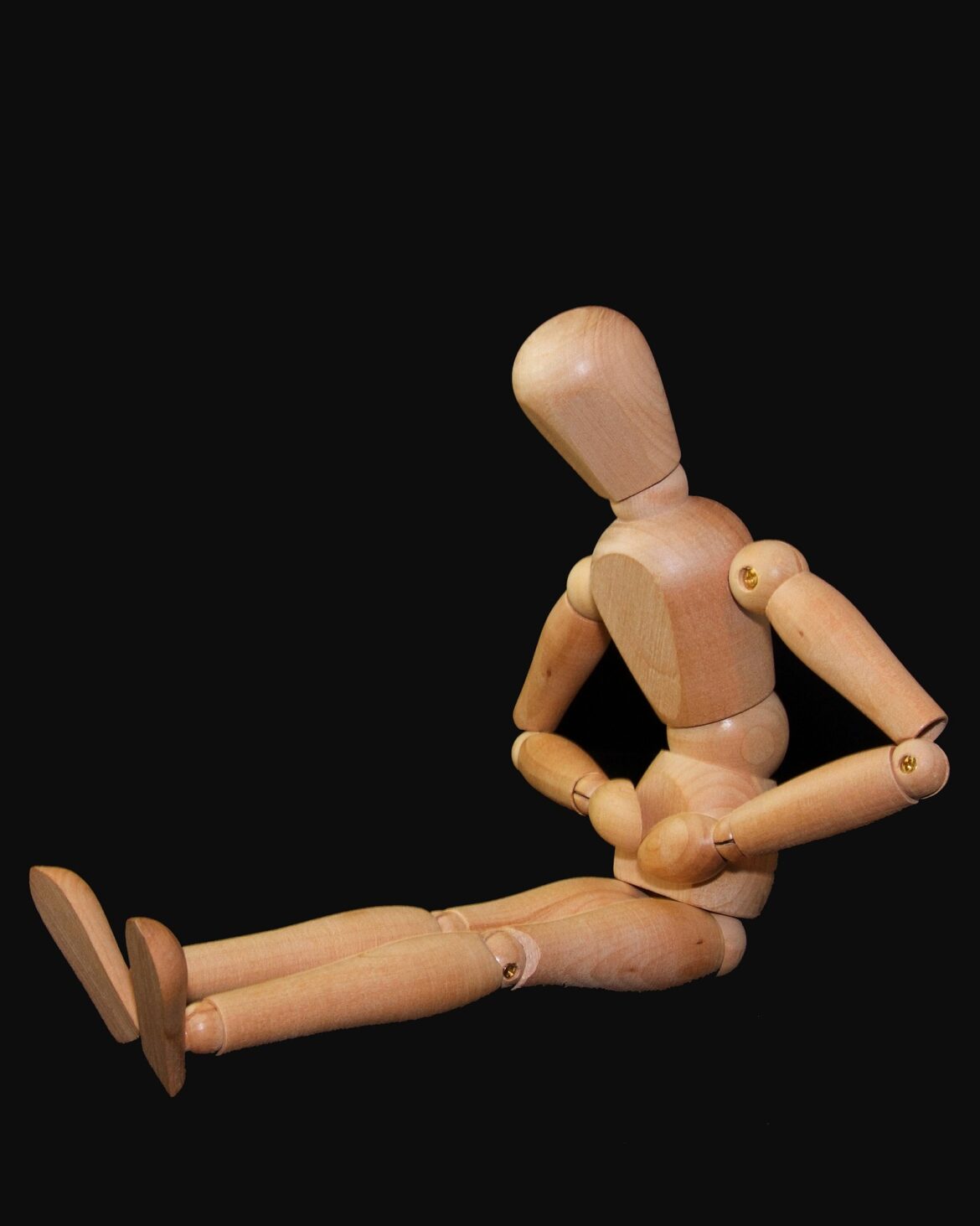Living With Endometriosis – How Endometriosis Affects Your Emotions
Over 176 million women of reproductive age live with endometriosis, often experiencing severe and debilitating pain as well as infertility. Unfortunately, diagnosis may take years before finally occurring and treatment options remain limited even then.
Multiple qualitative studies have demonstrated how living with endometriosis can have serious repercussions for mental health, relationships and overall quality of life.
Symptoms
Women living with endometriosis frequently report experiencing pelvic pain before and during menstrual cycles, as well as symptoms related to bowel movement, urination and excessive bleeding (known as dysmenorrhea). Some may even find their symptoms worsen after having children or engaging in sexual activities.
Endometriosis can cause intense abdominal and vaginal discomfort. It’s vitally important for people with endometriosis to keep a record of their symptoms so they can demonstrate them to healthcare providers, like GPs. Although some GPs can identify endometriosis by asking questions about it, most need referring to a specialist called a gynaecologist for examination of both their tummy and vagina for patches of endometrial-like tissue in both areas.
Endometriosis symptoms include painful menstrual cycles, cramping, pain with bowel movements and urination, as well as intercourse. For many this can be distressing and lead to decreased self-confidence or self-esteem.
Endometriosis makes pregnancy more challenging for people looking to conceive, particularly if their disease has advanced to stage 4; severe endometriosis causes scarring to both ovaries and fallopian tubes that makes conception much harder.
As part of our survey, many women reported that endometriosis’ pain and symptoms had an adverse impact on both their work/school lives as well as relationships. Some were unable to work or study while others missed school or college due to pain-related symptoms.
Living with endometriosis can have long-term psychological repercussions; women living with endo have reported feelings of depression, anxiety and stress as well as low self-esteem. Therefore it’s crucial that those experiencing such symptoms seek help from an accredited therapist or counsellor.
People living with endometriosis have found relief through various treatments, including pelvic floor physiotherapy to relax tight muscles, nerve desensitising techniques and medications, herbal medicine or acupuncture to alleviate their discomfort; some GPs and hospitals offer specialists in these treatments; search online to locate one near you.
Treatment
Medication may help relieve pain and reduce inflammation associated with endometriosis, including nonsteroidal anti-inflammatory drugs (NSAIDs) like ibuprofen and naproxen. Some doctors may also recommend hormone medication that mimics menstrual cycles to reduce growth of endometrial-like tissue while preventing new cysts or scarring from forming; however, hormone therapy is not a permanent solution and symptoms may return once therapy has stopped.
Endometriosis is a chronic uterine condition caused when cells that resemble those found lining the uterus form elsewhere in the body, such as on ovaries or behind it. Hormonal fluctuations cause these tissues to respond with swelling of their own which then breaks down and bleeds – only this time around, blood stays inside your pelvic region, leading to chronic pain for long after menstruation ends.
Pelvic pain is often linked with menstruation; however, it may also arise before or during sexual encounters and when having to pass stool or urinate. Other symptoms may include difficulty getting pregnant and heavy menstrual bleeding.
If your symptoms don’t respond to medication, surgery may be the answer to remove endometrial tissue. Your doctor can use laparoscopy – making small cuts in your belly and inserting a tube with a camera on one end (the laparoscope) into it in order to examine affected areas; they can also biopsy any suspected lesions using this procedure and have them tested under a microscope to confirm endometriosis diagnosis.
Alternative treatments include pelvic physical therapy, which can build muscle strength and provide pain relief. Your physiotherapist will work with you to develop an exercise plan tailored specifically to your health that may include massage therapy, pelvic floor exercises or breathing techniques.
Exercise is also vital as it encourages your heart to pump more blood around your body and organs, improving circulation. Regular physical activity helps reduce inflammation, boost your mood and enhance sleep quality; low-impact exercises such as walking, swimming and yoga may reduce this strain on the body.
Emotional wellbeing
Emotions such as sadness or anger are natural; however, you can work to manage them so they do not become overwhelming. Your emotional wellbeing affects how you respond and process negative emotions as well as stressors – and determines your ability to adjust to change during difficult periods.
Living with endometriosis can be challenging. Your quality of life and relationships may suffer, and finding support systems you can rely on may also be important; being open about symptoms with them can also be helpful. Joining an online or in-person support group may provide an avenue for networking among people who share similar experiences as yourself.
Stress and anxiety can aggravate endometriosis symptoms or make them worse, creating an ongoing cycle of discomfort and worry. Everyone has their own method for dealing with their stress; some good ones include exercising regularly, meditation, yoga or deep breathing exercises as well as getting enough restorative sleep. Reducing activities which increase your levels of stress could also be useful; you may even qualify for Medicare rebates on selected visits with psychologists and allied health providers.
Depression is common for women living with chronic pelvic pain, but there are numerous treatment options available to you. Speak to a gynecologist or psychiatrist and follow a self-care plan with medication as part of it for guidance. Or join an endometriosis support group where others share similar experiences.
Sexual desire for women can be affected by multiple factors, including her health, age and relationship status. It’s essential to find a balance that works for you while being open and honest with your partner regarding any symptoms that could interfere with sexual intimacy.
Women living with endometriosis often have lower libido than their peers without this condition, which can be an immense source of frustration and sadness when trying to conceive but failing. Isolation may ensue from this, so it’s essential to reach out and find an inclusive community in which to participate.
Relationships
Women living with endometriosis who are also partners often report that it negatively impacts their relationship. This could be caused by pain and infertility issues; some couples experience difficulty discussing these symptoms openly; some women feel their partners do not take them seriously or understand the severity of their condition; while some experience discomfort from lack of physical closeness due to pain or fear this will make their partner uncomfortable.
Dyspareunia is one of the main symptoms associated with endometriosis and may prompt women to forgo intimacy altogether. Women diagnosed with endometriosis also frequently describe additional symptoms that interfere with sex life such as pain during intercourse or after childbirth, failure for sexual encounters to result in pregnancy, bloating and fatigue – some medications can make these even worse for both parties involved.
Many women diagnosed with endometriosis have reported experiencing a decline in sexual desire (libido). This can be extremely distressful and it is common for many to struggle with their libido at first when facing this disease, posing significant difficulties to relationships as well as guilt or shame feelings.
Women may find it beneficial to visit a therapist specializing in chronic pain management and stress reduction for assistance. A good therapist will provide valuable strategies and assistance with managing menstrual pain more effectively, including how you cope with it during menstruation.
Many women find that adding exercise into their daily routine helps ease pain and discomfort, especially yoga which has proven effective at relaxing pelvic muscles and relieving discomfort. Eating healthily may also provide some relief; keeping a food diary may allow you to identify foods which worsen symptoms so they can be avoided in future diets.
Support from friends, family and online groups can be invaluable for those living with endometriosis. Finding someone to talk to who has also experienced similar conditions is especially helpful; additionally it is vital that some form of normalcy be maintained throughout your daily routine; this will help manage emotional turmoil brought about by living with endometriosis.




